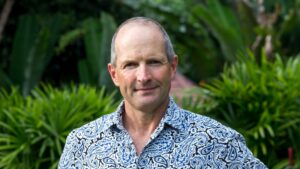If you’re setting wellness goals in 2016, make sure you put sleep as a priority.
Last year, the buzzword was “mindfulness”. I predict that in 2016, we’ll see the start of a sleep revolution – a focus on improving sleep habits.
It’s time to reclaim your sleep.
It’s no secret that people don’t get enough sleep. It enhances everything – your health, your mood, and your physical and mental performance.
In the corporate world, the sleep conversation is starting to change. I spent 20 years in the corporate world, bragging with my colleagues about 2 am finishes and 6 am starts. We wore fatigue like a badge of honor. Now we’re beginning to understand how stupid that is.
Corporate wellness programs center around sleep, fatigue management, and sleep improvement strategies.
We intuitively know that sleep is important. I think it’s one of the most important behavioral experiences you have in your life. If you sleep on average 7.5 hours a night by the time you’re 90, you would have slept for 32 years.
There is mounting evidence that our nation and the world is becoming seriously sleep-deprived. Research shows that in the 1950s, most people were getting an average of 8 hours of sleep a night. Today, the average is 6.5 hours. It’s even worse for shift workers.
The Adelaide Centre for Sleep Research reports that if you’ve been awake for 17 hours, your performance is reduced to the same level as having a blood alcohol content (BAC) reading of 0.05g/100ml. This makes you twice as likely to have an accident. Stay awake 24 hours and your BAC equivalent is 0.1g/100ml. The TAC estimates that 20% of fatal road accidents involve driver fatigue.
Why is sleeping so hard?
Russell Foster is a circadian neuroscientist. He says that sleeping is hard because it seems like you’re not doing anything while you’re sleeping.
“You don’t eat. You don’t drink, and you don’t have sex. Well, most of us anyway. So therefore, I thought of it as a complete waste of time,” he said in a TEDGlobal talk in 2013.
However, intuitively, we all know that sleeping isn’t a waste of time.
There are three accepted theories on why we sleep:
Foster’s studies show that if you deprive people of sleeping while learning a new task, their ability to learn is “smashed”.
“What’s turned out to be really exciting is that our ability to come up with novel solutions to complex problems is hugely enhanced by a night of sleep. In fact, it’s been estimated to give us a threefold advantage. Sleeping at night enhances our creativity,” says Foster.
You can stick to your old busy story and continue to brag about lack of sleep, or you can take action and improve your sleeping habits and the rest of your life.
Like running a good marathon, good sleep doesn’t just happen. You have to plan for it and stick to it when you get tempted to stray from the wrong path.
Andre’s Tips:
The Chernobyl and Space Shuttle Challenger disasters were attributed to poor judgment as a result of tiredness. On a more everyday scale, it’s all about your brain, your health, and your performance.
Sleep deprivation is a serious issue. Studies show that consistently getting less than 7 hours of sleep a night can lead to:
The key point is that sleep is fundamentally important. So if you don’t sleep well now, make 2016 the year you do something about it.

Andre Obradovic is an ICF Leadership PPC Level Coach, A Primal Health Coach, a Certified Low Carb Healthy Fat Coach, & a Certified Personal Trainer. Andre is also a Founding member of the Dr. Phil Maffetone MAF certified Coach. He is an Ambassador for the Noakes Foundation, and a regular subject matter expert lecturer for the Nutrition Network (a part of the Noakes Foundation) Andre has completed 16 x 70.3 Ironmans and in 2017 he competed in the 70.3 Ironman World Championships. He has completed 18 Marathons and over 30 Half Marathons. Andre currently focuses his athletic competition on Track and Field with the occasional Marathon.